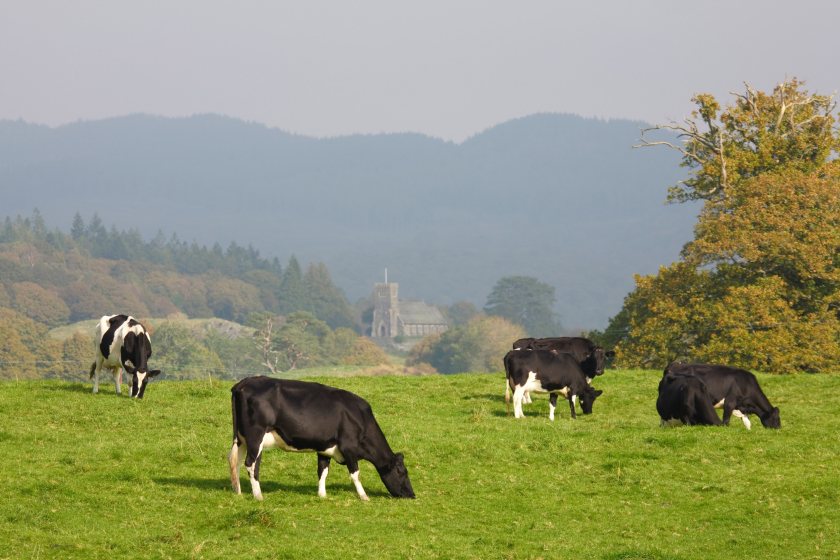
The NFU has toughened its stance on greenhouse gas reporting, backing a split-gas system it says will reveal the true climate impact of farming and deliver fairer, more effective policies.
At present, emissions are reported collectively under international rules using the GWP100 metric, which converts all gases into carbon dioxide equivalents (CO2e).
The NFU says this system “overstates the effect of constant methane emissions on global surface temperature by a factor of 3–4” while downplaying the impact of new methane sources.
Methane, farming’s main emission, is short-lived but treated in the same way as long-lived gases such as carbon dioxide and nitrous oxide. The NFU argues this masks their very different warming effects.
President Tom Bradshaw said: “A split-gas approach that distinguishes between short-lived gases like methane and long-lived gases like carbon dioxide would allow for more accurate measurements, better informing policy decisions and more clearly recognising the progress UK agriculture is making.”
The NFU is urging government, devolved administrations and the wider food supply chain to adopt split-gas reporting. It believes greater transparency will not only improve climate policy but also ensure the sector’s efforts to cut emissions are fairly acknowledged.
The union is also pressing for dual reporting of emissions, using GWP100 alongside what it calls “warming-based metrics”. This would replace its 2022 position favouring GWP* and allow flexibility as new scientific methods for measuring methane emerge.
NFU President Bradshaw added: “British farmers and growers are committed to tackling climate change, all while continuing to produce high-quality, sustainable food for a growing population.
“However, the current system of measuring greenhouse gases overstates the impact of ongoing methane emissions while simultaneously understating the impact of new sources, meaning that the true picture of farming’s climate impact is misrepresented.
“Government investment to allow farmers to access the tools and technology that are needed to further reduce emissions is essential.”
Farming accounts for around 10% of the UK’s greenhouse gas emissions, with methane from livestock making up the largest share.
The NFU has set its own goal of reaching net zero across agriculture by 2040, a decade ahead of the government’s national target.
